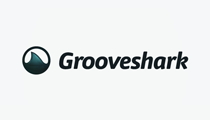This website uses cookies so that we can provide you with the best user experience possible. Cookie information is stored in your browser and performs functions such as recognising you when you return to our website and helping our team to understand which sections of the website you find most interesting and useful.
Business News Digital Grooveshark Timeline Labels & Publishers Legal
Labels accuse Grooveshark of evidence tampering
By Chris Cooke | Published on Friday 21 February 2014
The major labels have accused often controversial streaming music service Grooveshark of destroying key evidence for one of their legal cases against the digital firm.
As previously reported, although Grooveshark has been accused by multiple players in the music space of operating a copyright infringing streaming service – by allowing users to upload all and any audio content – it has always maintained that it operates a takedown system just like (if by no means as sophisticated as) YouTube.
Which means, the argument goes, it is protected from infringement claims, in the US at least, by the same American laws utilised by the Google-owned video site (although YouTube has licensing deals with many rights owners, it is protected if a user uploads a bit of content not covered by those agreements by having a process for the rights owner to have that song or track removed).
While many labels and publishers argue that Grooveshark operates a shoddy takedown system, and should therefore not get the protection of the US Digital Millennium Copyright Act, it’s not clear if that argument would stack up in court. So instead Universal, Sony and Warner have accused Grooveshark employees of also uploading unlicensed content to its servers, something that would sit outside of DMCA protection.
Grooveshark denies that is the case but has so far failed to have the majors’ lawsuit dismissed. And now the record companies are claiming that the digital firm – while this case has been going through the motions – has destroyed stacks of data and source code which would have allegedly proven unlicensed uploading was occurring within the streaming service’s offices.
According to Law360, the music firms are calling for evidentiary and monetary sanctions to be issued against Grooveshark “for the repeated, wilful spoliation of multiple categories of key evidence”. Legal papers filed this week add: “Had defendants not destroyed this evidence, it would have further demonstrated defendants’ liability for copyright infringement and exposed them to hundreds of millions of dollars in additional damages”.
Grooveshark is yet to respond to the latest claims against it.






